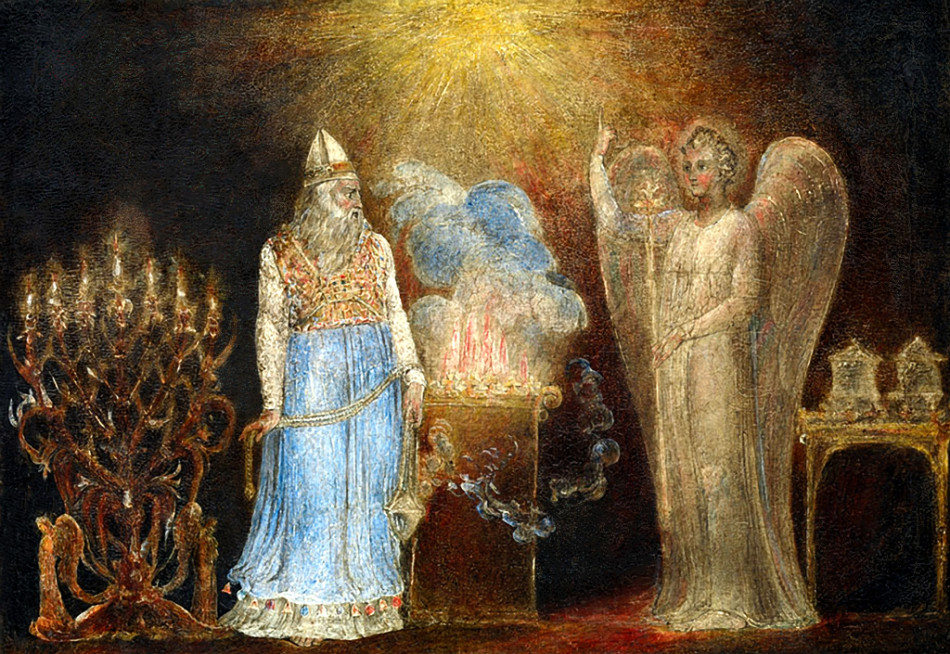 Now while the people were in a state of expectation and all were wondering in their hearts about John, as to whether he was the Christ, John answered and said to them all, “As for me, I baptize you with water; but One is coming who is mightier than I, and I am not fit to untie the thong of His sandals; He will baptize you with the Holy Spirit and fire. His winnowing fork is in His hand to thoroughly clear His threshing floor, and to gather the wheat into His barn; but He will burn up the chaff with unquenchable fire.”
Now while the people were in a state of expectation and all were wondering in their hearts about John, as to whether he was the Christ, John answered and said to them all, “As for me, I baptize you with water; but One is coming who is mightier than I, and I am not fit to untie the thong of His sandals; He will baptize you with the Holy Spirit and fire. His winnowing fork is in His hand to thoroughly clear His threshing floor, and to gather the wheat into His barn; but He will burn up the chaff with unquenchable fire.”Despite his fiery preaching style, John displays refreshing humility. Many in the community were desperately awaiting the Messiah, and the crowd was abuzz with the hypothesis that John was he. What an opportunity to attract a large following and start a movement! He could have even tried to justify his actions since being considered the Messiah could gain him a larger audience to preach his message of repentance. At the least he could have offered a shrug and remained mysterious.
But he doesn't. Not only does John put the Messianic rumors to rest, he places himself in one of the lowest categories possible. Only a slave would have the job of untying Jewish sandal caked with dust and sweet. National pride prevented a Hebrew from ever being required to do this for another Hebrew. John maintains that he is not even worthy of being a slave of Jesus.
Not only was Jesus' character superior to John, so was his mission. John performed a baptism of water and repentance; Jesus would baptize with the Holy Spirit and fire. Fire has the unique property of bringing both destruction and life. This fire would burn away the impurities of unbelievers while leaving his followers purged and perfected.
A winnowing fork is used to separate the desirable wheat from the undesirable chaff after a harvest. The wheat is the solid, good part used for food. The chaff provides protection for the wheat berries while growing but after harvest is the fluffy "bad part" most easily disposed of by burning. Before the winnowing could be done, the wheat would be thoroughly threshed - beaten to separate the wheat and the chaff. Throw the threshed wheat in the air, and the heavier wheat berries fall straight down, while the chaff blows away with the wind.
Jesus' coming would divide people into two camps - those who accepted him and were purified and those who were ultimately destroyed. But none of us are fully "wheat" this side of heaven. The trials and circumstances of life are used by God to "thresh" the chaff from our lives. In the midst of tribulation our true character is often revealed. Some are solid in their faith and come through purified; others float away and miss their chance at purification. We all have elements of the old, sinful man that cling to us. At times we may have these traits for protection, and at times they may seem "engrained" parts of our personality (groan - pun intended).
What "chaff" in your life needs to be threshed and burned?
The parabolic statement about wheat and chaff reminds us not only that the community is mixed but also that each of us have our own good and bad elements. There is for each of us chaff that needs to be blown away and burned. There is a separation here of good and bad, useful and useless; but it is not like the difference between apples and oranges. Each of us individually is wheat and chaff.
- The Very Rev. Dennis J.J. Schmidt













